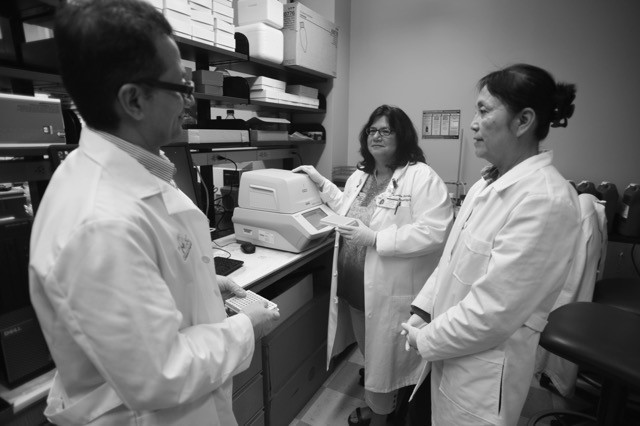Biden promises the “moon” in new government initiatives to cure cancer. How will he deliver?
“For the loved ones we’ve all lost, for the family we can still save, let’s make America the country that cures cancer once and for all,” President Obama declared at his final State of the Union address. He continued by announcing intentions to implement the “moonshot” cancer program, led by Vice President Biden; an initiative that came as no surprise following the death of Beau Biden who died recently of brain cancer. “The Federal government will do everything it possibly can — through funding, targeted incentives, and increased private-sector coordination – to support research and enable progress,” said Biden in a more recent statement. So, how will this new program be implemented, and what advancements are expected?
Last week, during a discussion panel at the World Economic Forum, Biden called for medical and research bodies to establish collaborative networks that facilitate the open sharing of research findings and data. He suggested that unlocking existing private networks was vital to ensuring the program’s success. Concerns were raised around the confidentiality risks, but the panel of researchers and medical professionals present subjugated this concern. They demonstrated how patients can be easily identified without traditional methods such as name or age, but rather through their DNA. They proposed that the key to a cure will be found in genetic data and the future advancements of next generation genomic sequencing; a view widely supported by medical professionals around the world. The data itself would be used to compare the genetic variants of the disease, further enabling the creation of genetic profiles specific to each tumor, and allowing investigators to identify cause factors and implement individual treatment systems. The proposal to support these programs is promising, but comes at a hefty price. The “moonshot” program pledges to shine a light on this new technology by investing millions of funds into further advancements into research. But Biden’s promise isn’t the only one.
A day prior to the initiatives announcement, the National Immunotherapy Coalition – a collection of pharmaceutical, biotechnology companies, academic centers and community oncologists – also declared a “moonshot” initiative that seeks to utilize immunotherapy as a means to finding a cure. The Quantitative Integrative Lifelong Trial (QUILT) program aims to analyze the effects of various existing forms of treatment on the genetic makeup of individual cancers and their hosts, allowing researchers to identify how various treatments react and with whom they are successful. Led by Dr. Soon-Shiong, QUILT’s program focuses on boosting the immune system in combination with low dose radiation and chemotherapy, to fight cancer.
While it’s clear that the two initiatives share a common belief that personal genetic sequencing is a promising alternative to traditional treatment methods, genomic sequencing is not traditionally covered by private insurers or Medicare, so how will the system change to grant patients access to these otherwise unaffordable approaches?
According to research statistics, advancements in medicine and the overall standard of living have improved since the 1950’s, increasing the average lifespan by approximately 10 years. Because cancer is more likely to develop later in life, lengthened lifespans have inevitably increased the number of occurrences and deaths resulting from the disease. In addition, lifestyle changes such as the rise in consumption of red meat, the increase in exposure to sunlight via sunbathing and the growing number of obesity cases, have all contributed to increasing numbers of bowel cancer, melanoma, and other forms of the disease. Www.cancer.org warns that cancer is one of the number one causes of death in America, and although risks have declined since 1991, the number of deaths have risen significantly. 1.7m new cases of cancer will be diagnosed in 2016, and almost 600,000 will die from the disease; a significant increase of almost 50% which comes as a direct result of lifestyle changes and increasing lifespans.
It’s clear that with cancer cases on the rise and mortalities increasing as a direct result, investment should not only be directed into finding a cure, but considerations should also be made around the accessibility of healthcare. In the early stages of the programs implementation this poses a significant question. What steps will the government take to ensure that treatment is easily accessible to all? At this point there is no answer, but hopefully, time will reveal the solution.
What are your thoughts and concerns? Share them with us.
Resources:
http://www.cbsnews.com/news/biden-nows-the-time-for-moonshot-in-cancer-fight/
http://www.fastcompany.com/3055540/medical-space-race-the-two-moonshots-to-cure-cancer
http://scienceblog.cancerresearchuk.org/2015/02/04/why-are-cancer-rates-increasing/
http://www.cancermoonshot2020.org/
http://www.data360.org/dsg.aspx?Data_Set_Group_Id=195
















